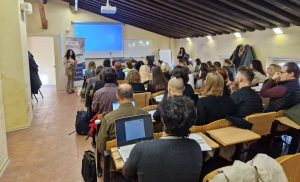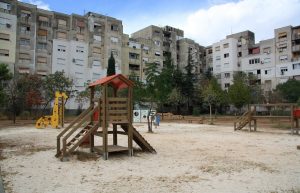IPS_Innovative Prison Systems is contributing its expertise in Radicalisation Prevention to the INTERPOL-supported project LEICA. The initiative is partnering with Central Asian countries to enhance law enforcement capacities in preventing and countering terrorist activity.
EU and Kyrgyz experts gathered to share and discuss best practices and recommendations that can contribute to preventing radicalisation and terrorism in prisons. These include risk screening and assessment, prison security, prison intelligence, staff training, and rehabilitation programmes.
The specialised group meeting was dedicated to creating a series of recommendations to support the development of procedures and services in prison management, focusing on the particularities of the Kyrgyz Department of Execution of Sentences (acting under the umbrella of the Ministry of Justice of Kyrgyzstan).
As experts in the field of Preventing and Countering Violent Extremism (P/CVE), IPS_Innovative Prison Systems brought to the table knowledge and best practices developed in the European context.

Leveraging IPS’ experience in Europe to advance P/CVE efforts in Central Asia
The importance of risk assessment and the use of reliable evaluation tools is an essential topic of discussion. Decision-making regarding risk factors and vulnerable individuals in prison must be rooted in a deeper understanding of the radicalisation phenomena, and the pathways to violent extremism. Then, accessibility to, and training in detailed risk-assessment tools allow for consistent responses based on knowledge instead of prejudice.
Multi-level instruments such as the Radicalisation Risk Assessment in Prisons (RRAP) Toolset developed in the R2PRIS project provide intertwining tools dedicated to different roles inside the organisation, resulting in a coordinated response.
Rehabilitation and follow-up after prison is another fundamental component for preventing radicalisation on discussion. Multi-agency cooperation in the prison-exit continuum and involving NGOs and other civil society organisations are important practices also in expansion throughout Europe.
Further projects involving IPS_Innovative Prison Systems, such as WayOut, MIRAD, EUTEx, and R2COM, are building upon this vision, focusing on inter-institutional transition programmes for violent extremist offenders. These projects are creating the foundation for enhanced cooperation between prison and probation administrations, judicial practitioners, and involving NGOs in P/CVE integrated efforts
Together with the knowledge shared in contributions from other European experts, and adapted to the region’s needs, the developed guidelines can foster the current prevention efforts in Kyrgyzstan and Central Asia backed up by experience and practices that work.
This meeting was held from November 29th to December 1st, 2022, in the scope of project LEICA (Law Enforcement in Central Asia), developed by CIVIPOL (technical cooperation operator of the French Ministry of the Interior) and ISEMI (International Security and Emergency Management Institute), with support from INTERPOL. The event exploring “Dynamic Security, Radicalisation and Prison Intelligence” was organised in Bishkek, Kyrgyzstan in cooperation with the country’s Department of Execution of Sentences.
To learn more about IPS_Innovative Prison Systems’ work in Radicalisation Prevention, visit the dedicated Portfolio page.
Related projects

EUTEx
Developing a European framework for disengagement and reintegration of extremist offenders and radicalised individuals in prison

MIRAD
Multi-Ideological Radicalisation Assessment towards Disengagement

R2COM
Radicalisation and violent extremism prevention in the community
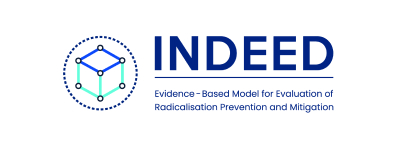
INDEED
Strengthening a comprehensive approach to preventing and counteracting radicalisation based on a universal evidence-based model for evaluation of radicalisation prevention and mitigation
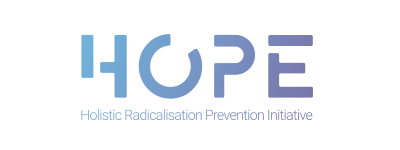
HOPE
Holistic Radicalisation Prevention Initiative (Balkan countries)

R4JUST
Radicalisation Prevention Competences’ Development Programme for Justice Professionals

WAYOUT
Integrated Exit Programme for Prisons and Probation

INTEGRA
Integrated Community, Probation and Prison Services Radicalisation Prevention Approach

PRACTICIES
Partnership against Radicalisation in Cities

R2PRIS
Radicalisation Prevention in Prisons
Related news
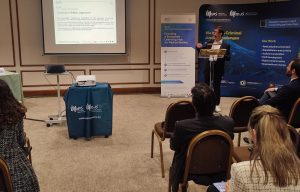
International conference unveils comprehensive strategies to tackle radicalisation in the criminal justice system and beyond
Read More »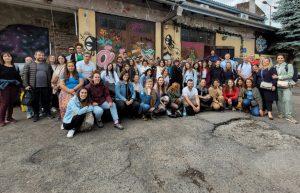
Youth radicalisation prevention in polarised societies: Empowering practitioners through training
Read More »
Working together for effective refugee integration: A stepping stone towards radicalisation prevention
Read More »
Empowering Criminal Justice Professionals: The Train-the-Trainer Initiative for Skills Sharing and Capacity Building
Read More »
